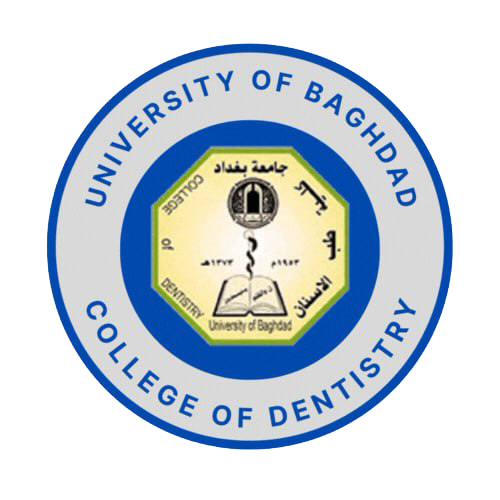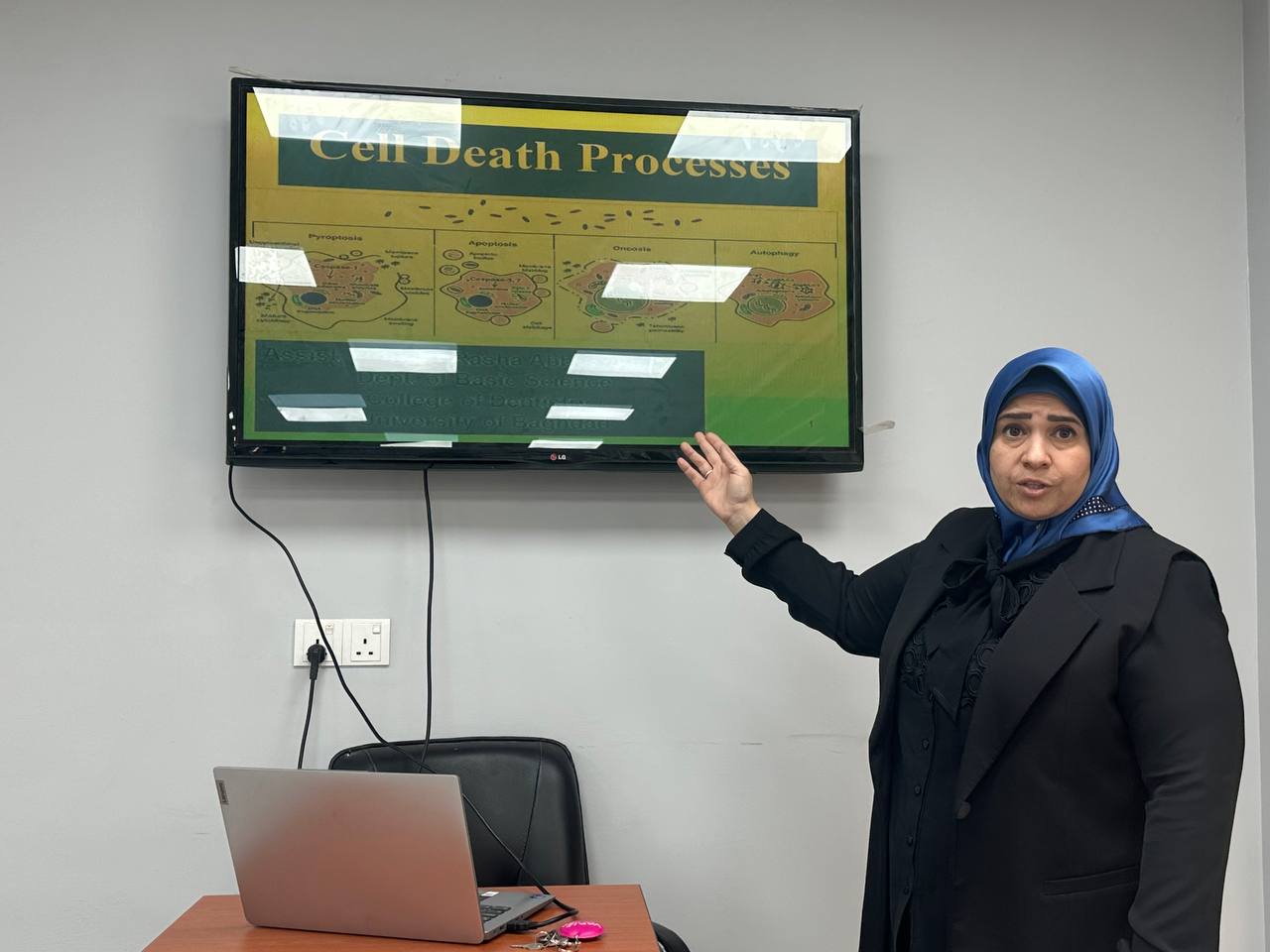Under the patronage of the Dean of the College of Dentistry, Professor Dr. Raghad Abdul Razzaq Muhammad, the College of Dentistry at the University of Baghdad organized a scientific symposium entitled “Cell Death Methods,” delivered by Assistant Professor Dr. Rasha Abbas Aziz, with the attendance of a number of faculty members.
The symposium aimed to introduce attendees to the importance of cell death, such as apoptosis and autophagy, which are natural processes. Cells die or are recycled to make room for new, more efficient cells.
The symposium also covered several topics, including cell death methods and their causes: Cell death is essential for the body’s stability and can be classified as follows: (necrosis, apoptosis, autophagy).
Necrotic cell injury can range from external injury to internal abnormalities. The most common causes of harmful stimuli include: Hypoxia: This can occur due to trauma or respiratory failure. Physical factors include external trauma, such as shocks, high temperatures, radiation exposure, or electric shock. Chemical factors include toxins. Biological factors include bacteria, viruses, or fungi. Immune reactions include autoimmune diseases. The symposium recommended that cell death pathways are important for growth. Billions of cells are eliminated during embryogenesis and growth in mammals to form new structures and maintain organ function. Large numbers of cells also die during pathological events, including tissue damage and inflammation, and must therefore be eliminated.










